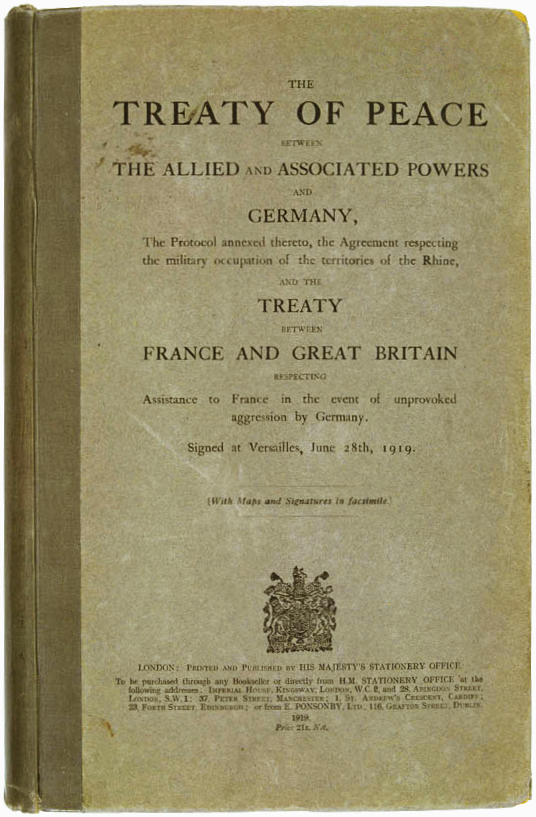How did the framers of the Treaty of Versailles reform nations' militaries?
1 Answer
Articles 159-184 (not all)
Explanation:
I surmise by reforming the nation's militaries (as all other nations just de-militarized, Austria-Hungary collapsed, so this would obviously not apply to them), you mean how Germany was affected.
In this case, let's proceed.
Article 159: Germany's army was to be demobilized.
Article 160: By March 31st, 1920, the German Army must not exceed 100,000 men
Article 162: The number of German officers must not exceed the number of German officers in 1913
Article 165: The amount of ammunition should be commensurate to the size of the army (stated in article 160)
Article 168: Factories approved by the Entente are the only ones that can produce munitions, and that arsenals would be closed down (that are not approved by the Entente)
Article 170: Germany can't import weapons
Article 171: Chemical agents are strictly forbidden in Germany, no production of tanks, or armoured cars
Article 173: Only volunteer forces are allowed
Article 177: Educational facilities must not occupy themselves with "military matters", and must have no connection to the Ministries of War
Article 181: Restrictions on navy (German naval forces in commission must not exceed six battleships of the Deutschland or Lothringen type, six light cruisers, 12 destroyers, 12 torpedo boats)
Article 183: Total personnel of the German navy must not exceed 1,500 officers, 15,000 men
Article 184: All German ships before the war ended are now part of the Entente
Conclusion: As you can see from the lengthy list, Deutschland was severely handicapped when it comes to military affairs, it almost seems excessive to me. Germany, of course, would not be able to recuperate from these clauses up until around and about some 18 years later, when Hitler broke the treaty by remilitarizing the Rhineland, exceeding the allowed forces, and other such http://things.
(Paraphrased from: http://alphahistory.com/worldwar1/treaty-of-versailles-military-restrictions-1919/)

